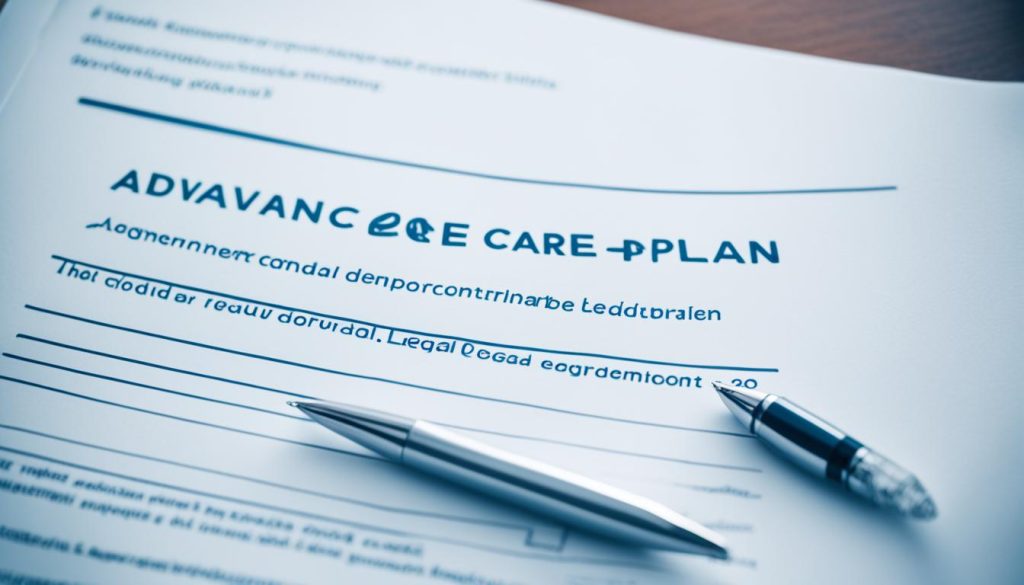When faced with a crisis or an accident, it’s important to have the right guidance and legal advice to navigate the situation effectively. Getting the support you need during these challenging times can make a significant difference in the outcome of your case. Whether you’re seeking advice after an accident or need legal consultation for accidents and personal injury cases, expert accident legal advice is crucial. In this article, we’ll explore the steps to take after an accident and offer guidance on finding the right legal representation.
Key Takeaways:
- Expert accident legal advice is essential for navigating the aftermath of an accident.
- Seeking guidance after an accident can greatly impact the outcome of your case.
- It’s important to find the right legal representation to ensure your rights are protected.
- This article will provide helpful insights on the steps to take after an accident.
- By following the proper procedures, you can secure the compensation you deserve.
Coping Strategies and Emotional Support After a Disaster or Traumatic Event
Dealing with emotional distress after a disaster or traumatic event is crucial for recovery. It’s normal to experience a range of emotions, but finding healthy coping strategies can make a significant difference. Here are some strategies to help you navigate these challenging times:
1. Take care of yourself
Self-care is essential when dealing with emotional distress. Make sure to prioritize your physical and mental well-being. Engage in activities that bring you joy and relaxation, such as exercise, listening to music, or practicing mindfulness.
2. Reach out for support
Don’t hesitate to lean on your support systems. Reach out to friends, family, or a trusted loved one and share your feelings. Talking about your experiences can provide emotional relief and help you process the event.
3. Limit exposure to news
Constant exposure to news updates about the event can contribute to distress and anxiety. It’s important to stay informed, but consider setting boundaries on how much news you consume. Take breaks from media coverage and focus on activities that promote relaxation.
4. Get enough sleep
Restful sleep is essential for emotional well-being. Establish a bedtime routine that promotes relaxation and create a comfortable sleep environment. Avoid stimulating activities before bed, such as screen time, to ensure restful sleep.
5. Establish a routine
Creating structure in your daily life can provide a sense of normalcy and stability. Establish a routine that includes activities you enjoy and prioritize self-care. Having a schedule can help you regain control over your life and reduce feelings of uncertainty.
Remember, everyone copes differently, so it’s important to find strategies that work best for you. Seeking professional help, such as counseling or therapy, can also provide valuable support during this time. Always remember that with the right coping strategies and support systems, you can navigate through the emotional distress caused by a disaster or traumatic event.
The Importance of Advance Care Planning and Legal Documentation
Advance care planning plays a crucial role in ensuring that your medical treatment decisions are respected and followed, especially in situations where you may be unable to communicate your wishes. It involves engaging in meaningful conversations with your loved ones and taking important steps to legally document your preferences.
Understanding Advance Directives
One essential aspect of advance care planning is completing legal documents known as advance directives. These documents, such as living wills and durable power of attorney for health care, provide explicit instructions regarding medical treatment decisions. By specifying your desired medical care preferences, advance directives ensure that your healthcare providers and caregivers understand your wishes.

Your Voice, Your Decisions
Advance care planning is not solely for the elderly or those facing serious illnesses. It is relevant for people of all ages and stages of life. Your preferences and medical treatment decisions are unique to you, and having a plan in place offers peace of mind and a sense of control over your healthcare.
“Creating advance directives empowers individuals to have their voice heard regarding their medical care, even when they are unable to make decisions themselves.”
By taking the time to engage in advance care planning and legally documenting your medical treatment decisions, you ensure that your wishes are respected and honored. It brings clarity and eases the burden on your loved ones, who may otherwise be left making difficult choices on your behalf.
Taking Action
If you haven’t already engaged in advance care planning, now is the perfect time to start. Begin by having open and honest conversations with your family, friends, and healthcare providers. Discuss your values, beliefs, and desires for medical care. Consider appointing a healthcare proxy, someone you trust to make decisions on your behalf, in case you are unable to do so.
| 1. Discuss: | Talk to your loved ones and healthcare providers about your medical treatment decisions. |
| 2. Document: | Complete the necessary legal documents, such as advance directives, to ensure your preferences are legally recognized. |
| 3. Communicate: | Share your advance directives and healthcare proxy designation with your healthcare providers and those closest to you. |
By following these steps, you can have peace of mind knowing that your medical treatment decisions will be respected and aligned with your wishes. Advance care planning empowers you to advocate for your own healthcare, even in challenging circumstances.
“Advance care planning gives individuals the opportunity to retain control over their medical treatment, ensuring that their wishes are honored and respected.”
Don’t wait until it’s too late. Start the conversation, document your preferences, and take control of your medical care decisions through advance care planning.
Seeking Professional Help and Support in Times of Crisis
When facing emotional distress and crisis situations, knowing when to ask for help is essential. The emotional impact of accidents and disasters can be overwhelming, and seeking professional guidance can provide the support needed for recovery.
One valuable resource for individuals experiencing emotional distress related to disasters is the Disaster Distress Helpline. This nationwide hotline offers 24/7 crisis counseling and support to those in need. Whether dealing with the aftermath of a natural disaster or coping with the emotional aftermath of an accident, the helpline provides a compassionate and listening ear.
In addition to helplines, counseling services can be an invaluable tool in navigating and processing the emotional toll of a crisis. Trained professionals offer a safe and supportive environment that allows individuals to express their emotions and gain insight into their experiences.
“Counseling services play a vital role in helping individuals understand and work through the trauma and distress caused by accidents or disasters. Our counselors are trained to provide expert guidance and support during these challenging times.”
Moreover, joining local support groups can provide a sense of community and understanding. These groups, led by trained professionals, offer a safe space for individuals to share their experiences, connect with others, and find comfort. By connecting with others who have gone through similar situations, individuals can find solace in knowing they’re not alone.
It’s also crucial to lean on the support of family, friends, and financial advisers. These trusted individuals can offer guidance and assistance in navigating the legal and financial aspects that often arise during times of crisis. Their support, both emotional and practical, can make a significant difference in the recovery process.
Remember, seeking professional help and support is a sign of strength, not weakness. Taking proactive steps to address emotional distress and accessing the necessary resources can lead to healing and resilience in the face of adversity.

The Importance of Expert Accident Legal Advice and Taking Necessary Steps After an Accident
When it comes to accidents, seeking expert legal advice is crucial. Whether you’ve been injured in a car accident, slip and fall incident, or any other type of accident, consulting an accident injury lawyer can help you understand your rights and legal options.
Taking the necessary steps after an accident is essential for a successful legal case. This includes gathering evidence, documenting injuries, and filing insurance claims. By following these procedures, you can ensure that your rights are protected and that you receive the compensation you deserve.
If you find yourself in an accident, don’t hesitate to reach out to an accident injury lawyer for a consultation. Their expertise in accident legal advice can guide you through the complex legal process, ensuring that you make informed decisions and take appropriate action.




No comments! Be the first commenter?